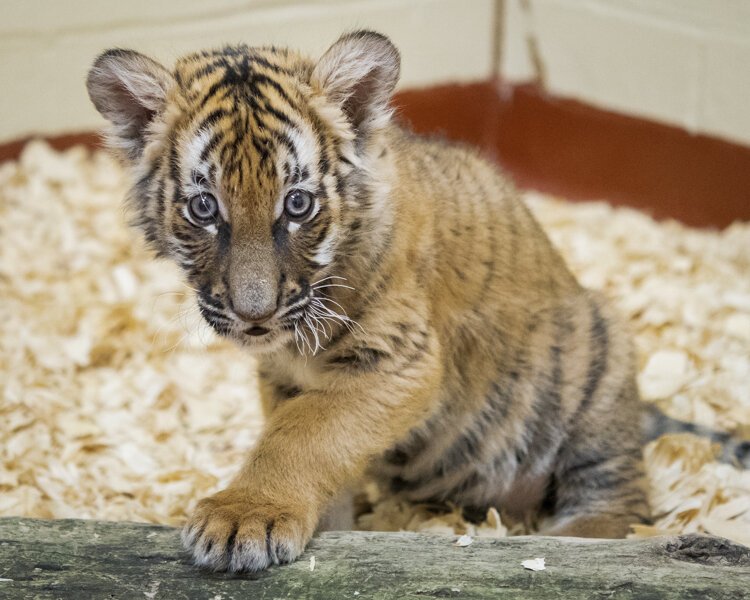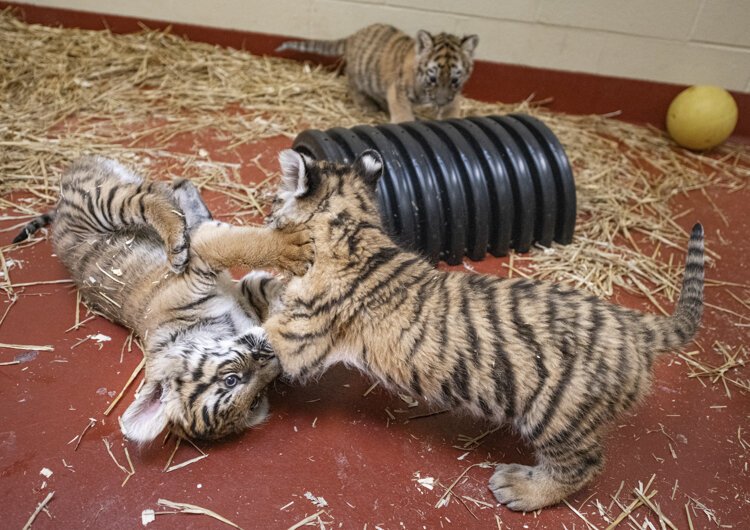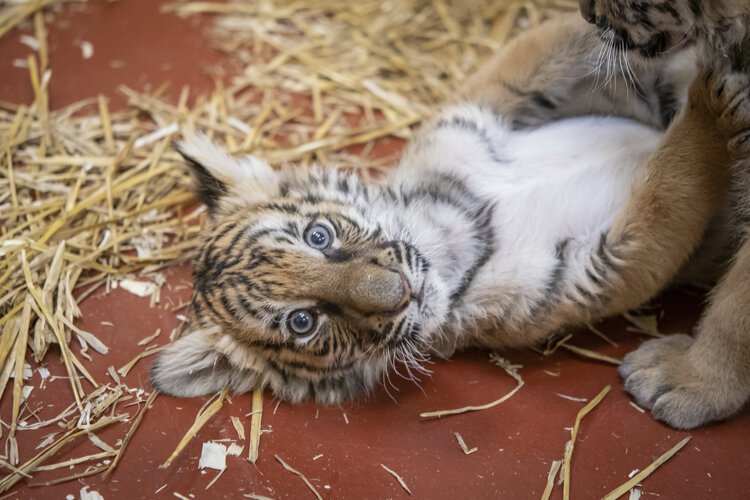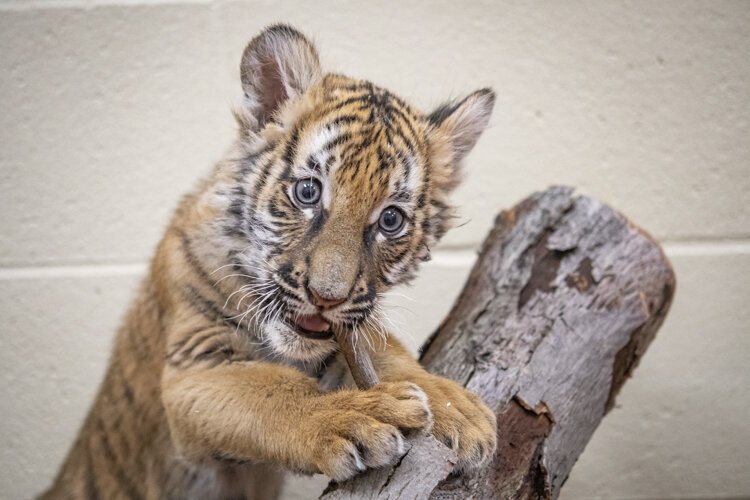Indrah makes three: Malayan tiger cub joins Amur cubs at Metroparks Zoo
Following the births of two Amur cubs in December, the Cleveland Metroparks Zoo earlier in February also adopted Indrah, a two-month-old Malayan tiger from the Tulsa Zoo in Tulsa, Oklahoma. Since coming to Cleveland, she’s bonded with her new feline friends, and was quick to take on a “big sister” role.
“They get along very well,” says Chris Kuhar, executive director of the zoo. “You never know how it’s going to go—especially with tigers—but they’re acting like they’ve been siblings all along.”
Both the Amur and Malayan tiger mothers lacked maternal instincts, which put their young at risk. After meeting Indrah and reviewing both species’ survival plans the Association of Zoos and Aquariums (AZA), which works with zoos on species conservation, found it most beneficial for her to join the Amur cubs—it was just a matter of where. In a phone call between the Metroparks and Tulsa Zoos, they found Cleveland to be most sustainable for three tiger kittens.
“It helps to the raise the cubs in one big group,” says Kuhar. “And we can care for all three of them here.”
While they belong to different subspecies, the three young tigers are being hand-reared together, for social and behavioral purposes. Once they’ve gained enough muscle and can hold their own, they’ll call Rosebrough Tiger Passage their home.
“When we raise tigers together, it puts them in a good position for socialization and breeding,” says Kuhar. “They learn ‘tiger behavior’ that way—something we can’t really teach them. And when they move on to adulthood, they’ll socialize like they would in the wild. We have to manage their social skills like human parents and push them towards independence.”
Like the Amur tigers, Indrah belongs to an endangered species. The International Union for Conservation of Nature declared Malayan tigers critically imperiled, as only a few hundred remain in their native Malay Peninsula in Southeast Asia. Considering the endangerment of all three cubs, visitors to “the passage” can learn more about poaching and habitat loss when its doors reopen this spring.
Unlike their new sister, the two Amur tigers are still nameless, and the Zoo could use your help. Through the Cleveland Zoological Society’s donation campaign, you can submit your name suggestion and combat illegal wildlife trade with Future for Wildlife. The last day to vote on a name is this Wednesday, Feb. 24.
To stay up to date on Cleveland’s tiger news, follow @clevezoosociety and @ClevelandMetroparksZoo on social media and check the Zoo’s website for regular updates.

About the Author: Dana Shugrue
Dana Shugrue is a graduate of John Carroll University, where she earned her Bachelor’s Degree in Digital Media and Professional Writing. She is a full-time Content Specialist at Budget Dumpster, and part-time freelance writer for FreshWater Cleveland. When she’s not writing, you can catch Dana taking a run through the metros or sipping a latte at her favorite local coffee shop.




